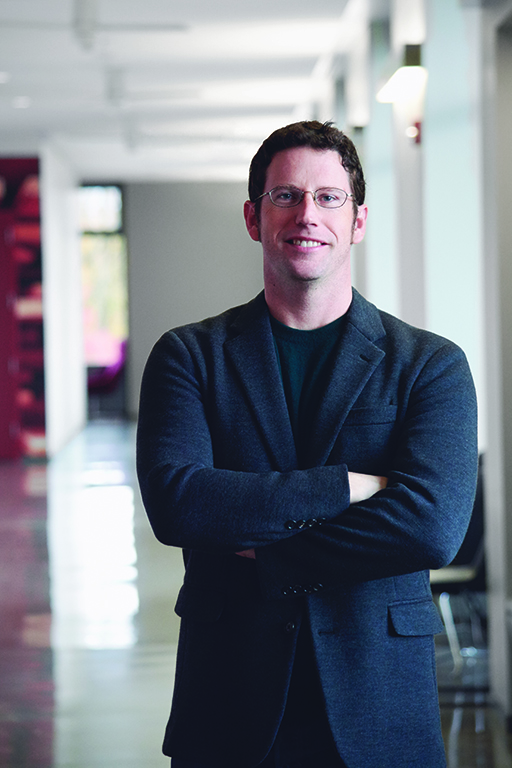Last summer, three Honors College students formed the first cohort in a new program designed to inspire undergraduate engagement in liberal arts research. Maia Insinga, Mahal Miles and Mohammed Shakibnia, along with their faculty advisors, were selected through a competitive process to spend 10 weeks on research and professional development. This unique internship — jointly funded and supported by the Honors College and Oregon State University Center for the Humanities — provided students with $4,500 for hourly wages and gave faculty an additional $500 for their own development expenses.
In addition to the research funding, Center for the Humanities Director Christopher McKnight Nichols and Honors College Associate Dean Tara Williams (who has since taken a new position) offered several conversations focused on professional development themes.

Nichols explains, “The Honors College-Center for the Humanities Research Internships provide an invaluable opportunity to spend a full paid summer researching and working closely with a faculty member. The fellowship also provides opportunities for professionalization, such as working on resumes and cover letters, and thinking about graduate school. Student interns clearly learned an enormous amount and were invigorated by the research as well as the mentoring involved in the program.”
The interns presented their research at a special event at the Center for the Humanities in fall 2019. “The student intern research presentations at the Center for the Humanities,” says Nichols, “were some of the very best I have seen from any undergraduate students in almost twenty years of college teaching.”
Maia Insinga, a psychology major with minors in Spanish and marine conservation and management, worked with Dr. David Kerr from the School of Psychological Science to research the use of cognitive behavioral therapy as a preventative measure against Seasonal Affective Disorder (SAD) in college students.
During her internship, Maia created a student-led group at OSU focusing on developing seasonal affective disorder resources on campus. “During the internship,” she says, “I spent my time writing and editing the leader manual and member packets for the group. At the end, I had created all of the materials for a group of students who struggle with seasonal depression at OSU. I got to present my research and accomplishments at three different research symposiums.”
These research symposiums were Maia’s favorite part of the internship, and she found the mentorship connections they provided extremely valuable. Additionally, she is grateful to have been given the opportunity to conduct research while also helping Oregon State students.
Now, almost a year later, Maia is working on her honors thesis, which incorporates psychology, ocean acidification and sea star wasting, and photography on the Oregon Coast. Maia plans to pursue a career in marine conservation.
Mahal Miles worked with Dr. Linda Richards from the School of History, Philosophy and Religion. Their project involved transcribing oral histories related to radiation exposure.
Mahal is a managerial economics major with a minor in public health management and policy and is also pursuing a medical humanities certificate. She describes the internship as “an incredible experience.” She explains, “I had the opportunity to conduct archival research, attend and transcribe oral histories portraying lived qualitative experiences and assist with the coordination of both academic and community events alongside my brilliant mentor, Dr. Linda Marie Richards. I discovered the significance of slow- versus fast-moving violences, explored the intersection between human rights and the pursuit of justice and helped generate discourse around a very pressing issue — the non-proliferation of nuclear weapons.”
This experience allowed Mahal to research and conduct work on a subject that she says is not discussed nearly enough: nuclear weapons development and its impact on communities.
“The mentorship of Dr. Richards, Professor Nichols and former Associate Dean Tara Williams was, to say the very least, invaluable,” Mahal says. “With the guidance and unwavering support of these mentors, I developed a newfound confidence in my abilities as a scholar and activist. This was the first time that I had ever been wholly supported and encouraged to devote time to a field in which I have the utmost interest.”
Currently, Mahal works as an intern at the ASOSU Office of Advocacy; after graduation, she hopes “to use the tools of economics to conduct research that shows the extrinsic, monetary and numerical worth of intrinsically valuable things such as human capital, reproductive labor and justice and environmental conservation.”
Mohammed Shakibnia worked with Dr. Christopher Stout from the School of Public Policy to study the historic political campaigns of Muslim women during the 2018 U.S. elections.
As a double major in political science and philosophy, Mohammed is grateful to have had the chance to work with Stout and analyze this important moment in history. He elaborates, “Stout [and I] analyzed issues of race and gender in the campaigns of Muslim women during 2018 midterm elections, particularly focusing on the racism they face on Twitter. We coded for keywords to determine how the congresswomen were conflated with messages related to terrorism. The data showed that they are conflated much more with terrorism than their non-Muslim counterparts, reflecting the discrimination they faced while running for and serving in office.”
This research process helped Mohammed grow as a student, but his favorite part of the internship was the academic and personal relationship he built with Dr. Stout. “He is an amazing mentor and helped me so much throughout the process. From doing the research itself, to getting to know him as a person, the entire experience was great and one that I will be always thankful for.”
Now, Mohammed is finishing up his last term at Oregon State and worked on Senator Bernie Sanders’ presidential campaign as a Muslim organizer. After he graduates, Mohammed plans to take a gap year before going on to law school to study immigration law.
The disruptions caused by COVID-19 forced the cancellation of the program in the summer of 2020, but the Honors College and the Center for Humanities are planning to continue the internship in 2021.
By: Christopher McCracken
CATEGORIES: All Stories Features Students